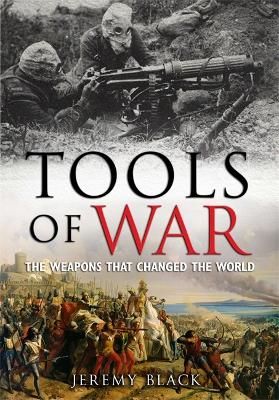"Experienced archers could manage 8 to 10 arrows a minute. With this firing rate, the 5,000 English archers on the field of battle that day could launch 40,000-50,000 arrows a minute, or 700 a second. French infantry and cavalry alike were decimated under the barrage of deadly missiles, and the Battle of Crecy was won for the loss of only 200 English soldiers, to nearly 10,000 French dead. The conquest of France beckoned..." Was the longbow the most significant weapon in the course of history? Or the iron sword, stirrup or chariot that allowed the victories of the great early empires of the East? Though gunpowder, the flintlock and the Gatling gun caused more carnage, did they cause swifter victory? And could anything compare to the effects - militaristic and economic - of the mass military industrialization of the World Wars, with tank, B52, V rocket ...and the atomic bomb? Or must all bow before the new weapons of stealth and precision of the 'military information age'? "Tools of War" tells, chronologically, the stories of 50 of the most significant advances in military technology and, in doing so, provides an insight into the history of warfare and conquest.
Each chapter focuses on a specific technology, from the Stone Age to the information warfare age, which has conferred a decisive advantage on the user and changed the way in which war is waged. Author Jeremy Black discusses the specific engagements or campaigns where the weapon had most effect, providing the reader with a course in military history as well as an overview of world history itself.
- ISBN10 1847242286
- ISBN13 9781847242280
- Publish Date 1 November 2007
- Publish Status Out of Print
- Out of Print 25 May 2015
- Publish Country GB
- Imprint Quercus Publishing
- Format Hardcover
- Pages 208
- Language English
